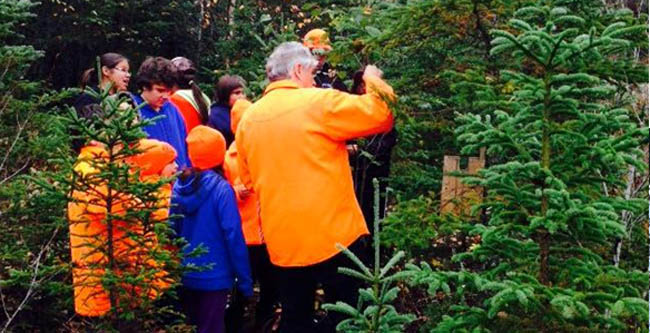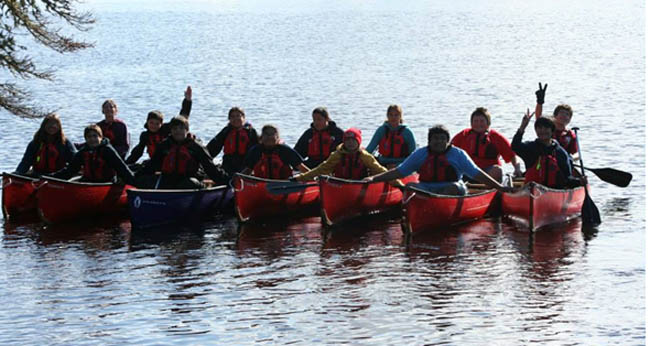Pic River youth learn more about life from the land


By Rick Garrick
Pic River’s Lucas Michano-Courchene and a group of nine 14-19 year-old youth learned more about life on the land in Pukaskwa National Park this past summer.
“We did a lot of canoeing, we set nets and did a lot of fishing (for) brook trout,” says the 19-year-old youth who has always loved going out on the land. “That was the first time I (ate brook trout) out there and it was really good.”
Michano-Courchene says the youth also learned bush survival skills from Willie Michano during the 10-day outing in July.
“He was really good in the bush,” Michano-Courchene says. “He knew a lot of (information) when it came to trees and berries that are edible. He knew which mushrooms were edible and which were dangerous to eat.”
Michano even took the youth out for a blueberry picking trip.
“I learned about all these other berries that are edible that I didn’t even know about,” Michano-Courchene says. “He also taught us which tree is which. Some people don’t know the difference between a lot of trees.”
Michano also gave the youth some pre-made emergency kits to carry around with them wherever they go.
“The kits had emergency blankets, waterproof matches, pre-made kindling and a bag of birchbark in case you had to make a fire,” Michano-Courchene says. “He said they’re good to keep in your vehicle if you ever break down in the winter.”
The youth also built a sweat lodge during the outing.
“We put it up in a day and then we had the sweat the next morning,” Michano-Courchene says, noting that some of the youth were nervous at first about going into the sweat lodge but ended up enjoying their experience. “It was great. I’ve been in lots but it was nice to see other kids doing it for the first time and enjoying it. It was a great experience all around.”
Michano-Courchene says the youth usually started their days by 8:30 every morning with supper scheduled for 4:30.
“We were taught different things throughout the day,” Michano-Courchene says. “We had something scheduled for the evening, whether it was going canoeing or going fishing or going blueberry picking or simply just playing volleyball on the beach. We sat around the campfire and talked to everyone and had fun.”
Michano-Courchene says the forest is “really thick” in Pukaskwa National Park.
“We were flown in to an inland lake,” Michano-Courchene says. “It is only accessible by a quad trail, and that is really grown in.”
Michano-Courchene says the lake was mid-sized with two creeks.
“It was actually a canoe portage route,” Michano-Courchene says. “We went down the creeks and it was really nice. We were actually staying on a beach and we had the camp set up right along the beach.”
Michano-Courchene says the youth all learned to respect the environment during the outing.
“What we’re doing to the world is not right and is not healthy,” Michano-Courchene says. “First Nations have lived off the land and respected it for a long period of time. We need to respect the environment. A lot of people don’t — look at littering, what is that?”
Michano-Courchene says First Nations need send a message to others in the world to respect the environment.
“First Nations people have to exercise their rights in order to maybe get that message through,” Michano-Courchene says. “But I personally don’t think enough First Nations are exercising their native rights.”


